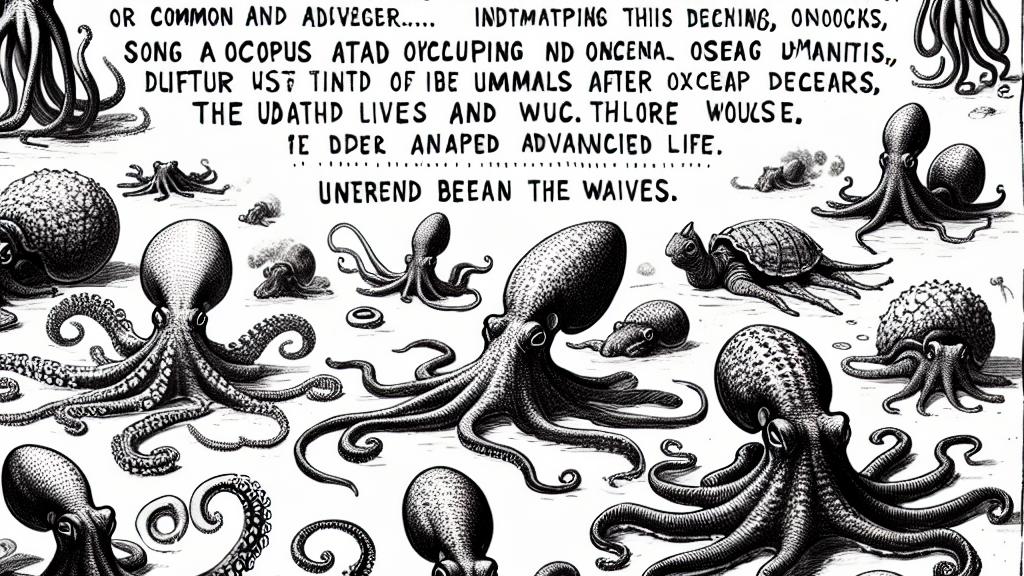What If Octopuses Build a Civilization After Humans?
Overview
- In a world devoid of humans, octopuses could emerge as the dominant intelligent species, reshaping marine ecosystems.
- Their incredible problem-solving abilities and use of tools might lead to the development of unique underwater civilizations.
- Nevertheless, overcoming social challenges is essential for octopuses to cultivate rich cultures and communities.

A Future Without Humans
Imagine a future Earth—a planet where humans no longer exist. Sounds eerie, right? In this intriguing scenario, scientists propose that octopuses could rise to prominence. As we confront the escalating threats of nuclear warfare and climate change, experts like Tim Colson from Oxford University assert that octopus species are primed to take advantage of the ecological gaps left by our demise. Just consider their diversity! With species from the colorful, playful common octopus to the bizarre and elusive deep-sea varieties, their adaptability shines. These versatile creatures have the potential to thrive and evolve in ways reminiscent of mammals after the catastrophic extinction of dinosaurs, finding niches in various oceanic environments and perhaps fostering a new age of intelligent life beneath the waves.
Octopus Intelligence and Problem-Solving Skills
Now, let's delve into what sets octopuses apart—their remarkable intelligence! Not only are they thought to be highly intelligent because they can navigate complex puzzles, but they also possess an uncanny ability to use tools. Take the coconut octopus as a perfect example; it cleverly carries coconut shells to its habitat, ingeniously using them as portable shelters when the need arises. Picture this: an octopus twisting off a jar lid to access its favorite treat inside! Their fascinating nervous system, which allows remarkable coordination among their eight arms, enhances their capability to engage with their environment. If octopuses were to develop a civilization, we could expect groundbreaking innovations and ingenious solutions that reflect their intelligence and adaptability, transforming their underwater realm.
Challenges in Social Structures
Despite their incredible potential, establishing a civilization isn't without its challenges. A primary obstacle lies in their innate solitary tendencies. Unlike humans, who thrive on cooperation and community, many octopus species prefer solitude, and some even exhibit surprising cannibalistic behaviors towards each other. For octopuses to create thriving societies, they must overcome their instinctual behaviors and learn to work together. As Peter Godfrey-Smith wisely notes, without social bonds and communal ties, the development of a culture becomes a formidable task. The question remains: can these intelligent beings evolve past their independent natures? If they succeed, it could unlock a world of possibilities for cultural richness and evolution that we can't yet fully fathom.
Imagining Underwater Cities
Now, let's envision what a civilization of octopuses might look like! With successful social evolution, they could establish vibrant communities beneath the waves, creating bustling underwater cities brimming with life. Can you picture vibrant reefs turned into magnificent living spaces, bustling with activity? Harnessing energy from tidal movements or hydrothermal vents—much like humans tap into renewable sources—would be essential for their survival and growth. Visualize octopuses collaborating seamlessly to construct intricate shelters from coral, shells, and other underwater materials. Imagine them sharing wisdom about resource management and ecological sustainability, fostering a culture of innovation. The transition from solitary existence to a communal lifestyle could redefine the underwater realm, creating a thriving network of creativity, ingenuity, and evolution, driven by the unique qualities of octopus societies.

Loading...